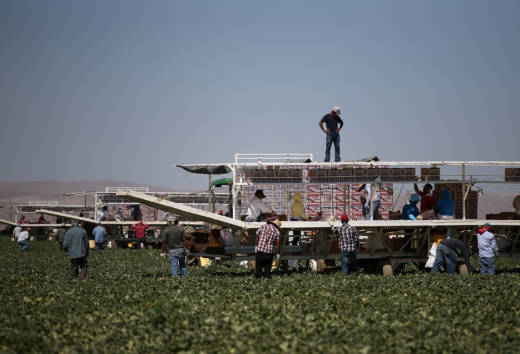The assemblyman's office had worked with state regulators and opponents of the legislation for more than a year.
Quirk was joined by advocates for agricultural employees in expressing concern that the bill was killed.
"It's disappointing that the California Legislature has failed to stand up for some of our most vulnerable populations, particularly farmworkers and children in agricultural communities that are affected by pesticide drift," said Paul Towers, organizing director at Pesticide Action Network North America, in an interview.
"As California looks to stand up to the Trump administration and show that it is the shining beacon of protecting immigrants and vulnerable communities ... this is a disappointing end for a bill that would have meant better protections for farmworkers from hazardous pesticides," Towers said.
Towers and other farmworker advocates had hoped recent attention placed on four separate chemical drift incidents in the Central Valley and Central Coast, which are believed to have sickened more than 150 agricultural employees, would push lawmakers to approve the legislation.
But the bill faced opposition from some of California's agricultural industry groups, including the California Farm Bureau Federation, which questioned whether the fine increases would have been effective.
"We believe current policies give county agricultural commissioners and DPR the authority they need to take appropriate action to enforce pesticide safety rules," said Cynthia Cory, the federation's director of environmental affairs, in a statement.
"We remain committed to assuring the safety and health of farmers, their employees and neighbors," Cory said.
The timing of the vote seemed to catch Quirk's office by surprise.
"We thought we had one more day to confirm votes," said Quirk's aide, Tomasa Dueñas, in an email. The office was told late Monday afternoon that the legislation would come up for a vote.
"Unfortunately the bill didn't get enough votes to pass off the floor. AB 1419 is dead for the year," Dueñas said.
The vote took place earlier than expected and legislators did not have enough time to review the measure, according to Towers.
The bill sailed through two committee hearings but garnered 26 "no" votes, and 16 members of the Assembly -- all Democrats, some of whom represent more rural parts of the state -- declined to vote yes or no on the bill when it came to a floor vote.
"Frankly, we did not have enough time to educate them on the issue," Towers said. "Bills were moved more quickly than maybe they should have been and weren't given the proper discourse."
Most members who voted for the legislation were Democrats. However, Assemblyman Brian Maienschein (R-San Diego) voted for the measure, and two Democrats, Elk Grove Assemblyman Jim Cooper and Brentwood Assemblyman Jim Frazier, voted against it.
The Department of Pesticide Regulation was the bill's sponsor.
"DPR is still very much committed to this issue, and we will explore other options to make this a reality," agency spokeswoman Charlotte Fadipe said in an email.
